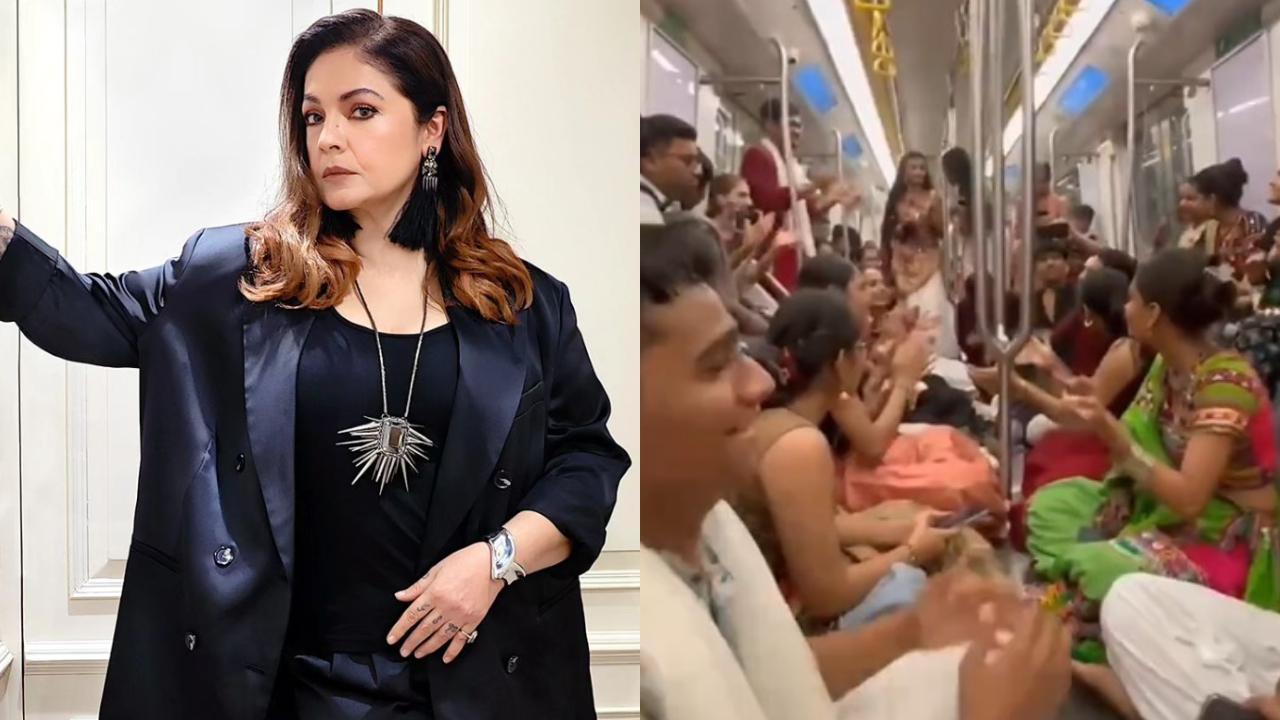
Amidst the vibrant celebrations of Navratri, a video went viral on social media, stirring up a storm of debate and controversy. The video, which captures a group of young people energetically singing ‘Jai Shri Ram’ along with other Gujarati garba songs, was recorded inside a crowded Mumbai metro train. While this display warmed the hearts of some who saw it as an expression of youthful exuberance and festive spirit, it deeply concerned others who saw it as a potential public nuisance.
Prominent actress Pooja Bhatt was among those who took to social media to express her disapproval. Sharing the video via her handle on the platform X, she voiced concerns over the misuse of public spaces like the metro. The video was initially posted by Kunal Purohit, an independent journalist and author who highlighted the growing trend of “Hindutva Pop” within urban and rural environments. In his post, Purohit suggested that such music, described as having a broad appeal, contributes to the normalization of an ethos that doesn’t recognize the boundaries of public decorum.
Addressing the issue, Pooja Bhatt questioned the permissibility of such activities in shared spaces meant for the public. She argued that regardless of the type of music or performance—be it Hindutva pop, Christmas carols, or Bollywood hits—public venues should not be misused in such a manner. “How and why are the authorities permitting this?” she asked, inviting responses from the broader community.
Filmmaker Onir, known for his outspoken views on social issues, echoed Pooja’s sentiments, lamenting that such activities are often frivolously passed off as cultural expressions. He stated that there is neither a spiritual nor a religious justification for such behavior, calling it disrespectful and arrogant.
Delving deeper, Bhatt extended her reflections to a broader concern about civic responsibility.
. She stressed that the failure to adhere to basic rules of conduct threatens the maintenance of law and order everywhere. Bhatt drew attention to various disruptions in public order, from political hoardings defacing cities to the turning of public transport into personal party zones, and she highlighted a particular incident involving illegal firecrackers used as cover in a violent street attack.
Bhatt’s remarks came in the wake of the recent high-profile assassination of NCP leader Baba Siddique on Dussehra evening. As details emerged, responsibility for Siddique’s murder was claimed by gangster Lawrence Bishnoi, previously known for threatening Bollywood superstar Salman Khan.
Beyond the controversy, Bhatt remains an influential figure in Indian cinema. Known for her work in the 1980s and 1990s, she has since returned to the screen, exploring new roles on OTT platforms. Recently, she participated in Bigg Boss OTT 2, where she showcased her bold persona to a new generation of viewers. Looking to the future, Bhatt is set to join forces with actor Suniel Shetty in an upcoming film, adding yet another chapter to her storied career. Her last appearance was in the drama series “Big Girls Don’t Cry,” which aired on Prime Video.
This incident underscores a larger discourse about cultural expressions in public spaces and the fine balance between celebration and civic duty. While the youngsters in the metro intended to share joy and connectivity during a cherished festival, the reactions reveal varying perceptions on the appropriateness and impact of such actions. As this debate unfolds, it serves as a reminder of the ongoing conversations about community, culture, and the responsibilities each holds in the fabric of society.












